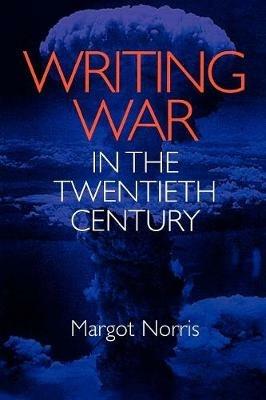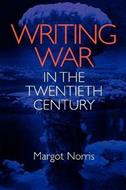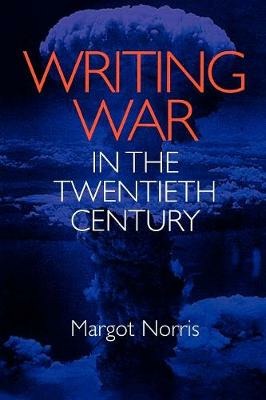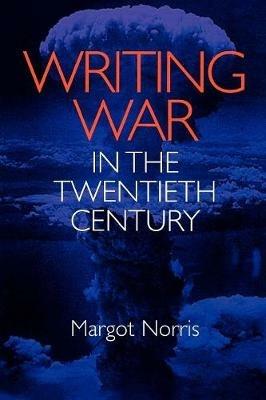Writing War in the Twentieth Century
The twentieth century will be remembered for great innovation in two particular areas: art and culture, and technological advancement. Much of its prodigious technical inventiveness, however, was pressed into service in the conduct of warfare. Why, asks Margot Norris, did violence and suffering on such an immense scale fail to arouse artistic and cultural expressions powerful enough to prevent the recurrence of these horrors? Why was art not more successful--through its use of dramatic, emotionally charged material, its ability to stir imagination and arouse empathy and outrage--in producing an alternative to the military logic that legitimates war? Military argument in the twentieth century has been fortified by the authority of the rationalism that we attribute to science, Norris argues. Warfare is therefore legitimized by powerful discourses that art's own arsenal of styles and genres has limited power to counter. Art's difficulty in representing the violent death of entire generations or populations has been particularly acute. Choosing works that have become representative of their historically violent moment, Norris explores not only their aesthetic strategies and perspectives but also the nature of the power they wield and the ethical engagements they enable or impede. She begins by mapping the altered ethical terrain of modern technological warfare, with its increasing targeting of civilian populations for destruction. She then proceeds historically with chapters on the trench poetry and modernist poetry of World War I, Hemingway's A Farewell to Arms and Erich Maria Remarque's All Quiet on the Western Front, both the book and the film of Schindler's List, the conflicting historical stories of the Manhattan Project, a comparison of American and Japanese accounts of Hiroshima, Francis Ford Coppola's film Apocalypse Now, and the effects of press censorship in the Persian Gulf War. By looking at the whole span of the century's writing on war, Norris provides a fascinating critique of art's ethical power and limitations, along with its participation in--as well as protest against--the suffering that human beings have brought upon themselves.
-
Autore:
-
Editore:
-
Collana:Cultural Frames, Framing Culture
-
Anno:2000
-
Rilegatura:Paperback / softback
Le schede prodotto sono aggiornate in conformità al Regolamento UE 988/2023. Laddove ci fossero taluni dati non disponibili per ragioni indipendenti da Feltrinelli, vi informiamo che stiamo compiendo ogni ragionevole sforzo per inserirli. Vi invitiamo a controllare periodicamente il sito www.lafeltrinelli.it per eventuali novità e aggiornamenti.
Per le vendite di prodotti da terze parti, ciascun venditore si assume la piena e diretta responsabilità per la commercializzazione del prodotto e per la sua conformità al Regolamento UE 988/2023, nonché alle normative nazionali ed europee vigenti.
Per informazioni sulla sicurezza dei prodotti, contattare productsafety@feltrinelli.it



